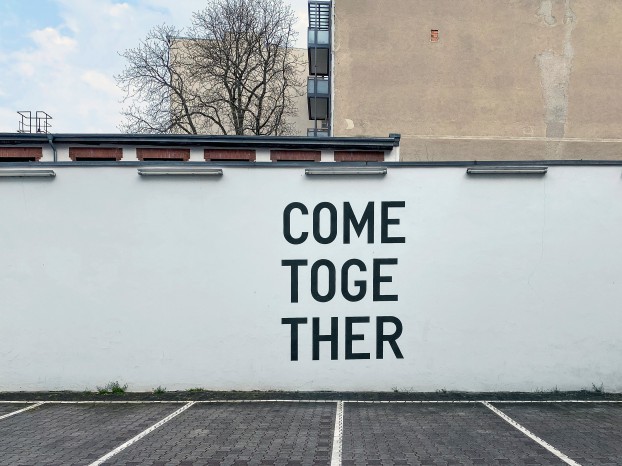Great Resignation: How are media leaders managing?
Agency execs Shelley Smit, Kevin Johnson, Noah Vardon, Sarah Thompson and Devon MacDonald share what they're doing to motivate and retain talent.
It's on the tip of everyone's tongue. Call it the Great Resignation or the Great Reshuffle, there's no doubt the pandemic has motivated many to take a good look at their work life and ask if there is something better/different out there.
A recent Environics survey noted that the majority of Canadian executives (81%) are having difficulty finding people with the right skillset to fill positions and 78% agree there is a skills gap in their respective industry.
So CARD spoke with some of Canada's leading media agency leaders about how they're responding to the situation.
How are you navigating retention and recruitment amid the Great Resignation?
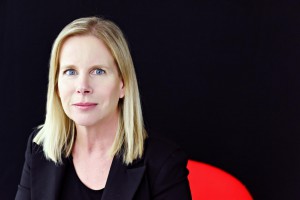 Shelley Smit, CEO, UM: For the past three years, our turnover has been less than 10%, which is significantly lower than the industry average of 30%+.
Shelley Smit, CEO, UM: For the past three years, our turnover has been less than 10%, which is significantly lower than the industry average of 30%+.
We recruit and develop our talent based on our core values of Curiosity, Candor, Courage, Caring, Community and Commitment, and these values drive how we work and who we work with. We believe in full transparency in all that we do, internally and externally. We communicate openly and often with all levels of the organization. There are no boundaries of hierarchy, and all members of our UM family have complete access to each other, including the leadership team.
The second key piece is recognizing the contributions of our team members. We believe in meritocracy and have created structures that allow for movement within teams and growth at all levels. We constantly evaluate progress and believe in promoting often. In addition, we ensure our salaries are benchmarked across the industry, make adjustments whenever necessary and consistently provide merit increases to reward our people for their contributions.
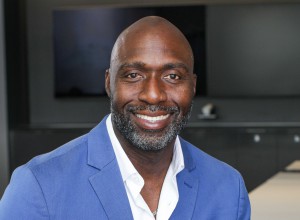 Kevin Johnson, CEO, GroupM: A key issue that the talent crisis has highlighted is the need to broaden and diversify the talent pool. We're thrilled to launch our bulk cohort program Launch Pad, which focuses on black, indigenous, and racialized community recruitment. These cohorts will run through a 12-week intensive media program with hands-on training from our domain experts across key media disciplines and come out with a Media Foundations certification and a job if they want it.
Kevin Johnson, CEO, GroupM: A key issue that the talent crisis has highlighted is the need to broaden and diversify the talent pool. We're thrilled to launch our bulk cohort program Launch Pad, which focuses on black, indigenous, and racialized community recruitment. These cohorts will run through a 12-week intensive media program with hands-on training from our domain experts across key media disciplines and come out with a Media Foundations certification and a job if they want it.
From a retention standpoint, our mission was to get through the pandemic without having to do any layoffs as we were seeing them across the industry, and we succeeded. We have focused on giving our people what they need to help them get through this pandemic. We have consistently communicated with and listened to our people through town halls, surveys, and open Q&As to understand what they need. Whether that's support, resources, flexibility, or just stable employment.
The next frontier that we are actively working on mastering is ensuring that we are helping our people see their career path and growth plan through our organization. The last few years have given us all a great sense of instability, and I want to ensure that we are providing stability in the short- and long-term to our people by helping them see their future with us.
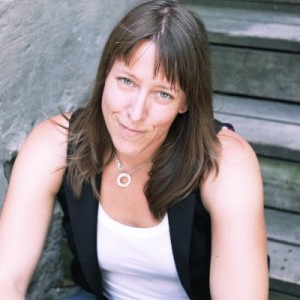 Sarah Thompson, CSO, Theo: Theo was born in the pandemic to serve Rogers, one of the largest brands in Canada. It was a joining of three agencies, and three different cultures. And in that time we have learned a great deal about our people and what it takes to have people be a part of an integrated agency.
Sarah Thompson, CSO, Theo: Theo was born in the pandemic to serve Rogers, one of the largest brands in Canada. It was a joining of three agencies, and three different cultures. And in that time we have learned a great deal about our people and what it takes to have people be a part of an integrated agency.
First, it is about learning – we want people to see this as the greatest learning opportunity possible and are striving every day to be the best in learning and development, access to WPP network and sharing intelligence and insight beyond titles.
Second, our culture is always a reason to stay and that isn't shaped by the leadership, it is shaped by the shared vision and joy that we have working together. And finally, we want people to have great careers and that is where we are most dedicated to our people, to have the discussion with candor about where you want to go and be in your career path and ambition.
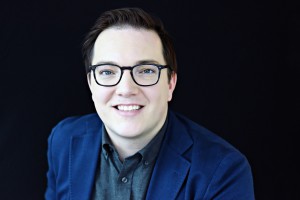 Noah Vardon, president, Havas Media: I'm excited about the evolution of our labour market and how it's driving positive change for our media industry. Media professionals have more choice than ever and they can choose to stay in the profession of media while working client side, partner side or agency side.
Noah Vardon, president, Havas Media: I'm excited about the evolution of our labour market and how it's driving positive change for our media industry. Media professionals have more choice than ever and they can choose to stay in the profession of media while working client side, partner side or agency side.
With more people considering change this past year, I've been able have conversations with some of the best talent in the market. This shift has led to fantastic hires and a diversity of talent that are bringing new perspectives from the financial and gaming sectors, helping us work with our clients on a much deeper level. For us, it's important when you're recruiting to find people who are looking to make positive change for the industry.
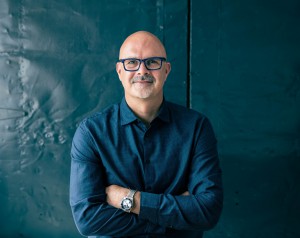 Devon MacDonald, president, Cairns Oneil: As we build new teams and recruit for roles we're definitely noticing that there are a number of highly skilled people leaving roles where they have only been working remotely. Remote working has been safe and convenient for the majority of people, but it offers no fixed connection to culture. These weaker ties need to be addressed to support people.
Devon MacDonald, president, Cairns Oneil: As we build new teams and recruit for roles we're definitely noticing that there are a number of highly skilled people leaving roles where they have only been working remotely. Remote working has been safe and convenient for the majority of people, but it offers no fixed connection to culture. These weaker ties need to be addressed to support people.
With work and personal lives interconnected physically, we need to create separation to give people a chance to disconnect but also have the support for work when needed. Staff have had the option to come into the office on a voluntary basis, depending on provincial health guidelines. We've created a number of new initiatives to support hybrid working, extended vacations to visit families overseas and supports in mental health for our staff. Staff are free to work remotely but do need to adjust to Eastern Standard Time and they plan to come into the office a couple of times a month. We are also getting ahead of the Right to Disconnect legislation and introducing new guardrails based on employee input. It's important to us that a proper balance is struck in servicing clients and having guardrails against personal space and time.
At its core, the evolving discussion over the past two years has been about personal priorities and values. As individuals what do we want out of life and how much of that do we want to come from our careers? Is everyone represented at the table, and does everyone at the table get the opportunity to speak and be heard? Basically life is short, and people want to live their best lives. For some that means moving on to a different industry/career entirely, but for everyone else it means we all need to reimagine what it means to work in media.
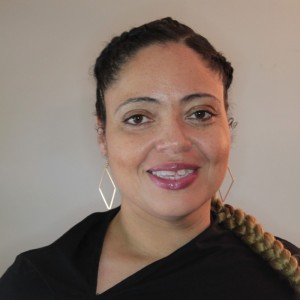 Ishma Alexander-Huet, VP, client advice & management, head of learning & culture: At Initiative, our approach to both retention and recruitment is iterative, because needs are diverse and constantly evolving, so we have a number of efforts ranging from strongly established to new concepts we're exploring.
Ishma Alexander-Huet, VP, client advice & management, head of learning & culture: At Initiative, our approach to both retention and recruitment is iterative, because needs are diverse and constantly evolving, so we have a number of efforts ranging from strongly established to new concepts we're exploring.
1. Focus on Wellness: People are working harder than ever during the pandemic, but work life balance is critical for retention. We need to truly disconnect, but that's easier said than done. That's why we implemented wellness days and increased base vacation for everyone. Wellness Days are unique because everyone gets 12, to take one day per month just to themselves. Managers are responsible for ensuring their teams take the days, and a special out of office message was created to support talent unplugging.
2. Diversifying recruitment: There simply aren't as many media practitioners in the market as there were a couple of years ago, which has accelerated a more diverse approach to recruitment. This includes looking at adjacent industries for people with transferable hard skills, but also building pipelines by reaching out to a broader list of college/uni programs for interns and working with high schools to build awareness of our industry with under-represented communities. Of course we continue to look beyond the Canadian borders as well, contributing to volume growth of in-market talent and place a heavy focus on inclusion as people won't want to stay if they don't feel included.
3. Career Advancement: People want to climb faster, and in this environment we're unfortunately seeing people leave for titles they aren't ready for. We won't compromise on our standards and required skills for each role but we can look for ways to accelerate growth, which will be a focus in 2022. This is additive to our existing Success Paths, a curated list of courses for people to take by role and discipline to help enable personalized growth.
What strategies are you using to motivate your teams and how are you going beyond functional exchanges in the virtual working world?
Smit: We believe that recognition supercharges talent and provides inspiration, boosting performance and accelerating best-in-class thinking to propel business success. Our Better Thank U Program recognizes and rewards teammates who exemplify outstanding collaborative behaviour. In addition, client recognition is shared and celebrated throughout the agency.
To ensure our people are consistently challenged and growing in their craft, we have invested in learning and training programs. Our goal is to stretch people and expose them to higher-level scope right from the beginning (i.e., strategy sessions, client meetings) to stimulate their curiosity and broaden their knowledge base. Everyone at UM has a Personal Development Plan (PDP) that aims to clarify long-term career objectives and the development opportunities needed to reach those goals. We also encourage our staff to be involved in initiatives beyond day-to-day expectations, such as developing and contributing to weekly and monthly newsletters, POVs and published content for clients and the wider agency network.
We understand that people sometimes need a change. We encourage our staff to feel comfortable putting their hands up when ready for a new challenge, and we accommodate changes within our structure to fit the needs of the employee. We recognize that deeper immersion equals better performance and commitment, so whenever possible, we pair our people to client portfolios that align with passion for the category, company, consumer, and scope. In addition, we provide opportunities for people to move into client businesses that match their interests (i.e., music, cars, financials, etc.)
Johnson: Tactically, our teams are working on building platforms that better facilitate collaboration and culture across virtual offices and, likely, the metaverse. But sociologically, motivation comes from feeling like you are a part of a team that's doing something that means something. For me, this year is about reinvigorating the pride in our craft as media practitioners by leaning into our GroupM vision to "make advertising work better for people." Our mission is to ensure that everyone in our organization understands the critical role they plan in that. With purpose comes motivation.
Thompson: One thing we never take for granted is the honesty and candor of our people – we have had turmoil, like most agencies, and we validate and listen and acknowledge our people's feelings and have our leadership checking in our people every day. But what inspires me every day is seeing the intrinsic motivation of our people – we have a group of people who are moved to conquer challenges. That is remarkable to have in any agency and has been a core of Theo since day one.
Vardon: The Havas North America Villages committed to making the transition to work from home seamless. The Villages maintained cadence and scaled formerly live Creative Consciousness programming virtually by inviting more people to engage in meditation, yoga, inspirational speakers, virtual film clubs, trivia nights, etc. To better support employees at home and in the office, we've taken steps to create partnerships and added workplace benefits to support employees physical and mental health, family care, and more.
Motivation comes from the work we do and people we make connections with. The reality though is that our business has become more complex and process heavy, so more time is spent on repetitive time consuming tasks, that tend to not be motivating. Leveraging technology to drive efficiencies and free up time for the exciting work is a large focus for us.
Alexander-Huet: Making connections within and across teams has always been a priority at Initiative, with our Culture Club being the device we use to help people share, learn and enjoy activities across a number of passion points and cultural celebrations/observations. From virtual crochet sessions, drag queen bingo, and steelpan performances to hikes in High Park and team summer picnics, we continue to experiment and learn how to create virtual experiences that go beyond functional to rewarding.
How are you bringing back connections between employees and teams?
Smit: Over the last three years, we have worked hard to provide opportunities for personal connection that contribute to an inspiring and supportive work culture. Our approach has been multi-pronged and includes weekly "Just Checking In" communications, a bi-weekly "Curiosity Café" which celebrates personal achievements and great work, a "Curiosity Connects" program, which books 30-minute sessions between random team members across the company, as well as "Coffee With" and "Spring Breaks," which encourage people to connect and learn a new skill together (e.g., yoga, photography, backing).
We also enable connection through our Better World Impact Day, a day when UM Canada, along with offices around the globe, close for one day to engage with and do good in our community. Last year, our team took up the challenge to walk over 700-kilometres to unlock almost $300,000 worth of media inventory to support BIPOC-owned small businesses across the country.
Johnson: We believe strongly that we aren't going back to the way things were before. So, we have adapted and looked at our approach to in-office and in-person collaboration as a critical piece of the culture and experience of working in media, but now it must be given dedicated time. Teams plan time together strategically to connect, bond and unwind – in person and online. Same with the greater group. We are planning some big celebrations and events throughout 2022, which have more meaning now. Before, these interactions and connections happened more sporadically and organically, but now they happen more intentionally.
Thompson: Our Club Theo has been active with events, Theo Café – coffee get to know you, thought leadership sessions and having collaborative groups working on a variety of topics from training to operations. Our people are the fuel, the engine and the steering wheel of Theo. That brings people together that might not normally get to work together and in turn they are solving problems in the agency every day.
Vardon: As we assess what is best for the future of our organization, we will continue to embrace a flexible hybrid work model. The new hybrid environment, for us, is one that's tailored to each individual's professional role and responsibilities, as well as their personal obligations. But in this industry, no algorithm or software can replace the value of human interaction and collaboration. The office should serve its purpose to bring people together, provide inspiration and foster creativity. While the office will continue to play a vital role in our creativity, how we utilize the space is an open invitation to collectively unleash our creativity and co-create a blended work experience that embraces long-term flexibility.
MacDonald: The biggest change we're going to have to make overall is our relationship to our office. The construct of the office as we knew it is gone. We are supporting staff and offering complete flexibility on location, but we miss them and want to see them. We are launching a new return to office plan shortly that will re-imagine our space and how staff use it. We're announcing our plan on how to achieve that with staff in the next week.



